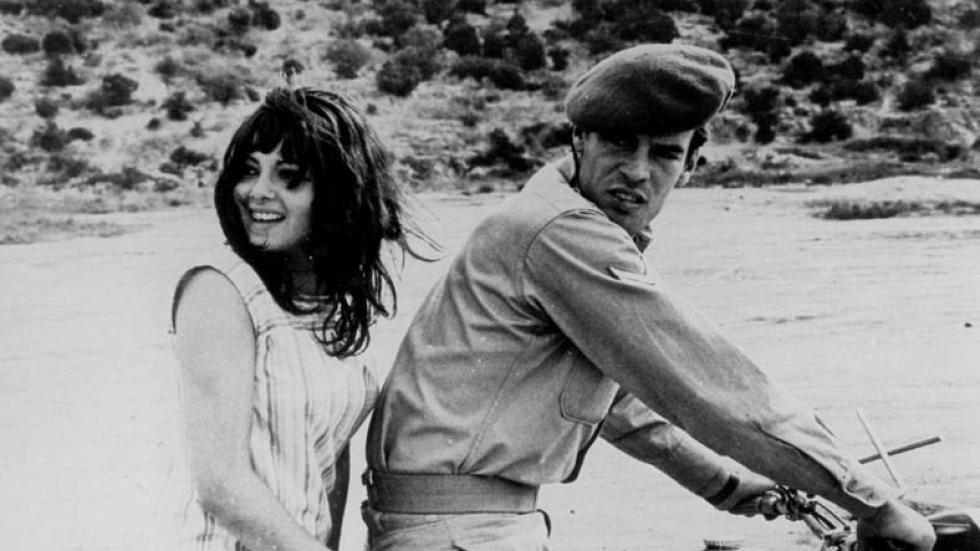EVDOKIA
O.V in Greek subtitled in Spanish and English

Alexis Damianos directed only three feature films, enough for him to be considered one of the greatest directors of Greek cinema, and for Evdokia, his masterpiece, to have been chosen by his country's critics as the best national film of all time. A recognition that came at the wrong time for the release of this film, an updated version of the tragedy from the free and unprejudiced point of view of the new cinemas. It tells the story of two young characters, a sergeant and a prostitute, who marry after a brief and intense romance. Soon social milieu and geography get in the way of their relationship, exerting a deteriorating pressure on it, in a film that is a visual experience. Restoration completed by the Greek Film Center in 2021.
Direction: Alexis Damianos
Cinematography: Christos Mangos
Editing: Matt Carthy
Music: Manos Loizos
Sound: Tony Anscombe, Nikos Despotidis
Cast: Maria Vassiliou, Giorgos Koutouzis, Koula Agagiotou, Christos Zorbas, Eleni Roda
Production: Artemis Kapasakali
Production Company: Katamor Productions-Poreia
INTO ANOTHER HISTORY OF EUROPEAN CINEMA
History, we know, is neither neutral nor incontestable: depending on who tells it and how. When it comes to the history of European cinema, it is increasingly necessary to re-evaluate the dominant canon that guides it, bringing to the forefront works both remarkable and often undervalued. For this reason, a new space has been launched to offer a new way of contemplating the continent's film legacy each year, entitled "Into Another History of European Cinema". The section is set up as a forum for reflection and (re)discovery, paying significant attention to pioneering works of feminism, class consciousness and the new types of cinema that have shaken the world since the sixties (some of them censored or attacked by the establishment), as well as to little-known works by key filmmakers. Eight films that illuminate and reveal another narrative of history will be shown for the first time in Spain in their recently restored copies, opening the debate on archiving works, and the role of festivals and film libraries in the reconsideration of the past.


